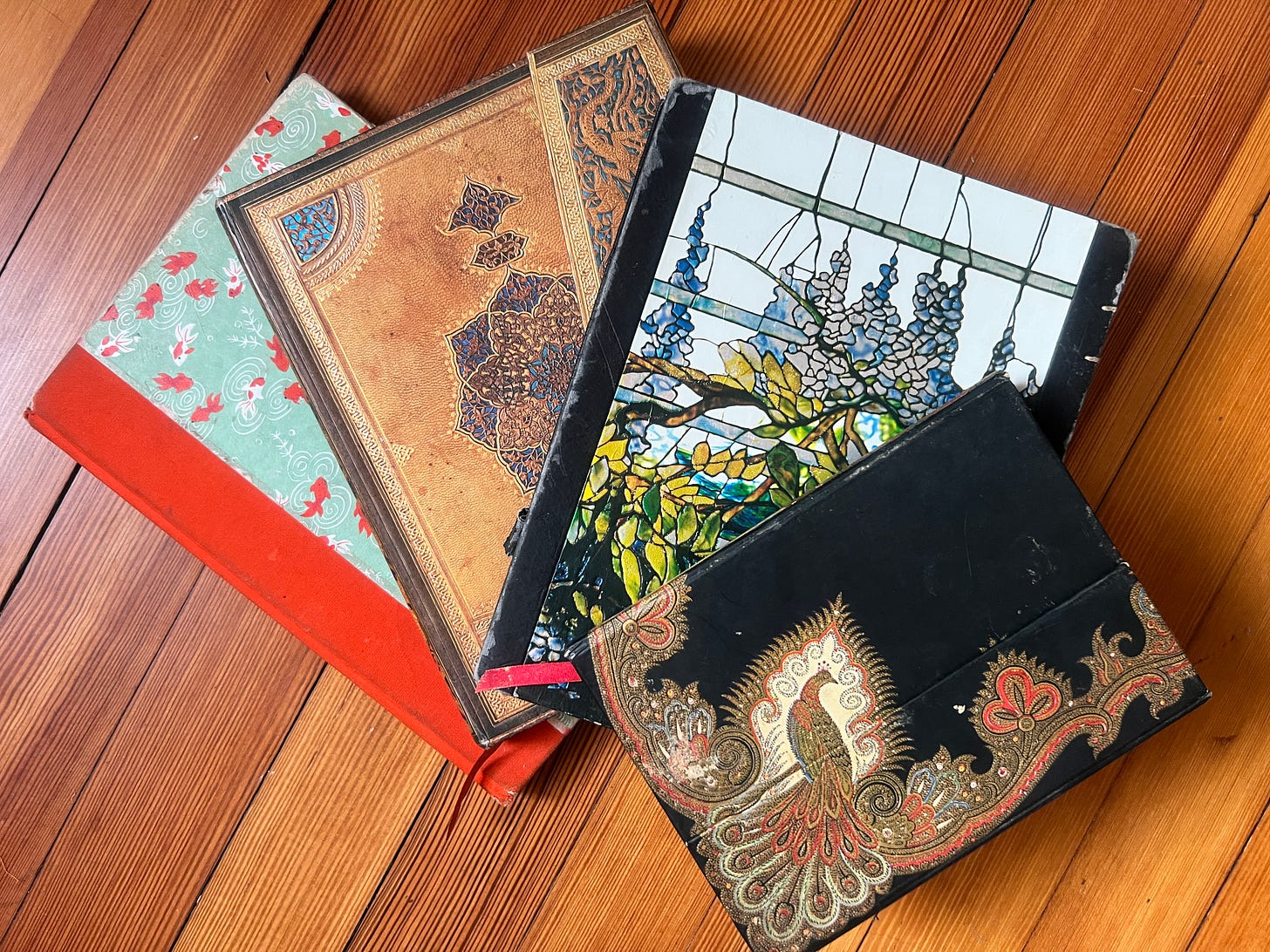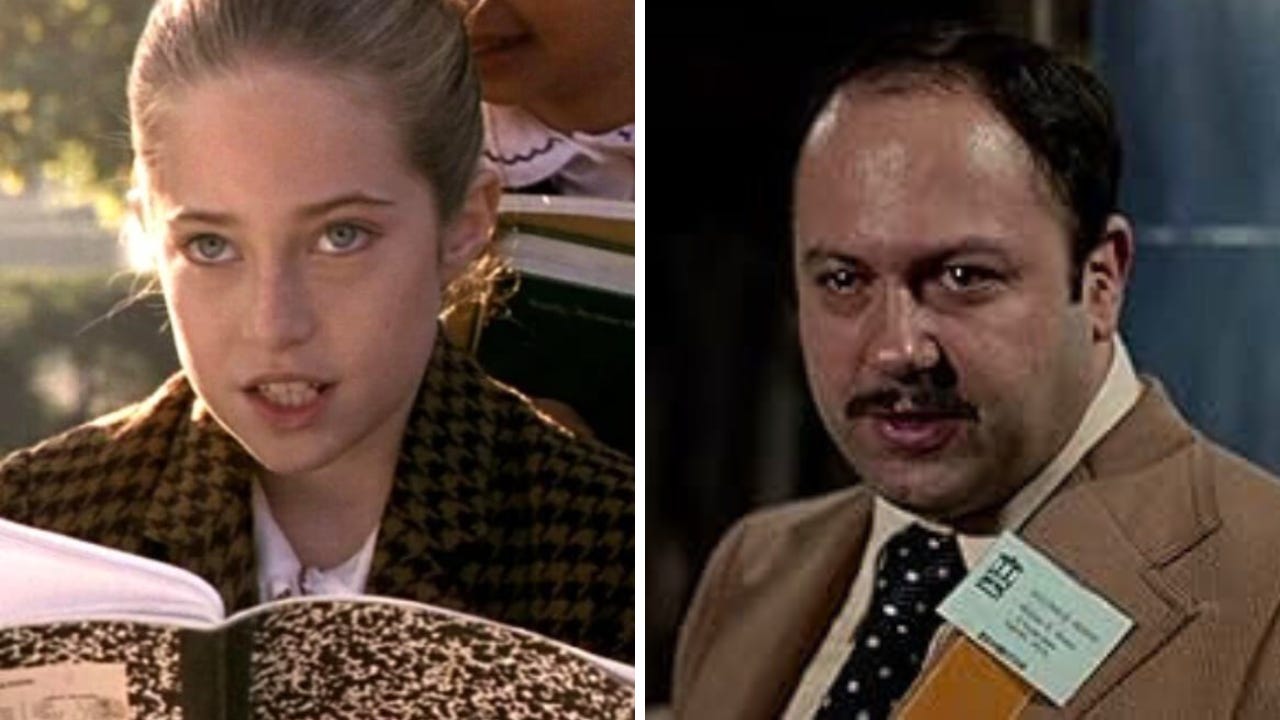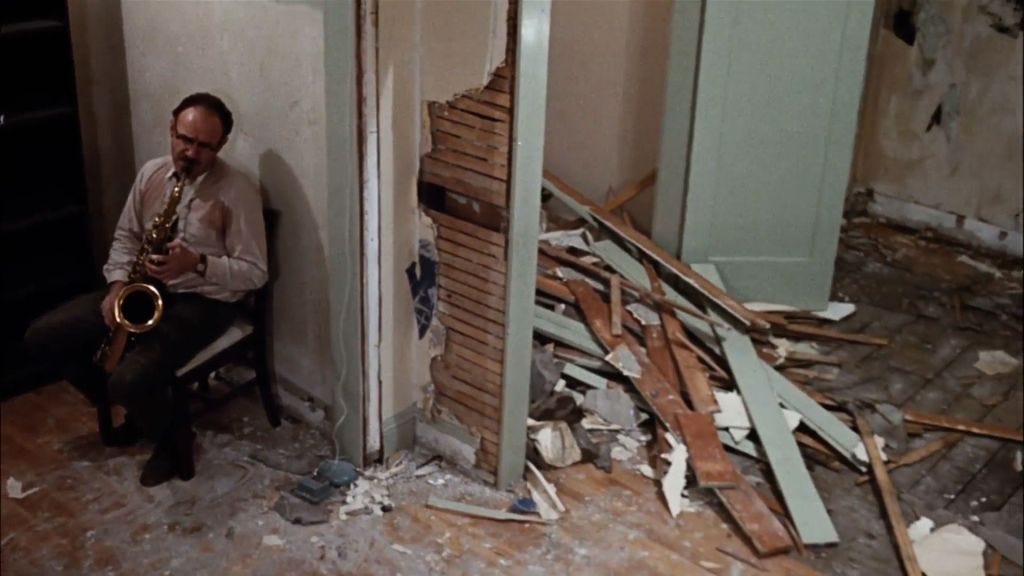I wanted to get this essay out to y’all sooner, but last week really got the best of me. Your girl is fully in a Period of Transition over here. Relatedly: the third anniversary of this here newsletter is coming up! To celebrate, I’m offering 30% off a year of paid subscriptions! That’s $3.5/month, or $35/year if you want to go for the Blue Light Special. Please take advantage of this while you can!
I can’t remember a me before Harriet the Spy. The book was one of my frequent re-reads in elementary school; like The Mixed-Up Files of Mrs. Basil E. Frankweiler, it was one of those books whose ‘60s aura gave it a comforting lo-fi texture. Reading it felt like listening to records, somehow. The movie, on the other hand, was loudly ‘90s. It also had one of my childhood crushes, Rosie O’Donnell, playing one of my literary crushes, Golly. And don’t even get me started on the Vanessa Lee Chester of it all.1
Harriet and I were both journal girlies, though I was less interested in being a spy. I just needed to write more than I needed to sleep, or to talk to people. And in rewatching Harriet the Spy as an adult, I realized we had more than just the journaling in common.
Harriet and I both have obsessive-compulsive disorder that went completely unrecognized by our parents. I watched Harriet make her absolutely disgusting sandwich and, despite the specific ingredients2, felt vividly represented onscreen. To this day, if an unwanted ingredient makes its way into my sandwich, I go full Tom Hanks eating caviar for the first time.
But more than that, we shared that neurodivergent urge to observe and catalogue rather than engage. My need to document all my thoughts and feelings, my need for all of my belongings to be in their correct place, even my need to step on equally-sized cracks in the sidewalk with each foot—all of that was keeping intrusive thoughts about a strange and sometimes frightening world at bay.
Harriet and I needed our rituals and routines to keep the world knowable and contained. So when her parents fire her true caregiver, Golly, they gravely disrupt her routine. Even worse, her burn book-ass notebook gets read aloud by HBIC Marion (you see it!), and any sense of safety or privacy she has is shattered.
All Harriet can do is spiral and lash out, so she can feel like her loneliness is a choice. When she looks Marion dead in the eye and says to her in that voice from hell that Marion’s father doesn’t love her, she’s trying to re-establish control after all of her worst-case scenarios have actually happened.3 Luckily, the always immaculate Golly comes back to help her find her footing again, by choosing vulnerability and connection over self-imposed alienation.
I first watched The Conversation in college, so it couldn’t have been my first Gene Hackman experience—I did have TNT growing up, after all—but it was my first “starring Gene Hackman” experience. It absolutely blew me away. Like, how was this magnificent creation what Coppola did as a break between The Godfathers Part 1 and 2? And it terrified me just as much. Hackman’s Harry Caul, an audio surveillance genius, suffers the kind of loneliness you feel for so long that it becomes the only thing you can choose. It’s the organizing principle of his life. His girlfriend doesn’t know where he lives or what his job is, and he punishes her with reproachful silence when she asks him any questions. He takes it as a massive personal violation that his landlord knows his birthday.
The whole thing plays like a spiritual sequel; a cautionary tale of what Harriet could have become.4 Harriet the Spy’s instinctual flinch away from being known has hardened into Harry the spy’s bone-deep terror of being perceived.
Just like Harriet’s notebook getting read aloud by her classmates, Harry has his own moment of world-shattering invasion. At a surveillance conference after-party5, Harry lets his guard down with a sex worker and asks for her advice on winning his girlfriend back. During the conversation, he realizes that he’s given his girlfriend no chance of knowing that he loves her, and given himself no chance of being loved by her. It’s the first time we see him show any emotion other than annoyance or anger, and it’s heartbreaking in its intimacy. Even more heartbreaking, then, is the reveal that his own Marion Hawthorne has bugged him, and then goes on to play the conversation for all six (6) party guests.
Harry’s one moment of vulnerability instantly becomes a cocktail party joke. And, like Harriet, his spiral only worsens from there. Unlike Harriet, though, he doesn’t have anyone to pull him back up. His alienation has calcified him so much that he can’t bend or grow to accommodate anyone anymore. All he can do is break.
When I was in college, I was deeply convinced that Harry’s fate would be mine. I was shy in a way that read as standoffish rather than self-protective, and his loneliness and alienation felt inevitable, for both of us. But it isn’t inevitable at all. Harry was choosing his isolation, even though it hurt him at least as much as being vulnerable would have. He chose to believe he could do without people, and do without empathy altogether.
Right now, the country is being run by people who flaunt their total lack of empathy, and have made that the organizing principle of their politics. And the so-called opposition party’s response is that we should all be less empathetic, actually. That caring about people is a losing strategy, so we should cut vulnerable people loose and, I don’t know, wear pink and hold up little auction paddles. But I think that, for most of us, trying to escape our responsibility to each other as humans only gets you a life like Harry, destroyed inside and out. Best-case scenario, you’ve got a saxophone and nothing else to keep you company.
Okay, just to start a little—I am a 37-year-old bougie Black girl, and a nerd, so Vanessa Lee Chester was my everything in the ‘90s. And still is, to a degree. She inspired me to learn how to do my own box braids at the beginning of the Covid lockdown, and I wear her comment on my post as a badge of honour to this day.
I sobbed every time I opened my lunchbox to find a tomato & mayo sandwich. Just thinking about the texture nauseates me.
As a fellow girl named Marion with abandonment issues, this is still as much a horror scene to me as Marion reading Harriet’s notebook is.
Attention must be paid to the theory that Enemy of the State is an unofficial sequel to The Conversation, with Gene Hackman reprising his role under a different name. It’s a theory I like, in part because by this point, his character has a cat! Growth!
I have no doubt that these exist, and are just as sad as this movie portrays them.







Thank you so much. Harriet the spy (book & movie) was a deep fixation for me for years (I ate a lot of soggy sandwiches for lunch as a result), this was def worth the wait. Can’t get right with people thinking the solution to our current situation is to *emulate* the people who want to say more slurs.
Thank you for recommending this double feature! My girlfriend had never seen The Conversation and I had never seen Harriet The Spy. We were both quite happy to have fixed that.